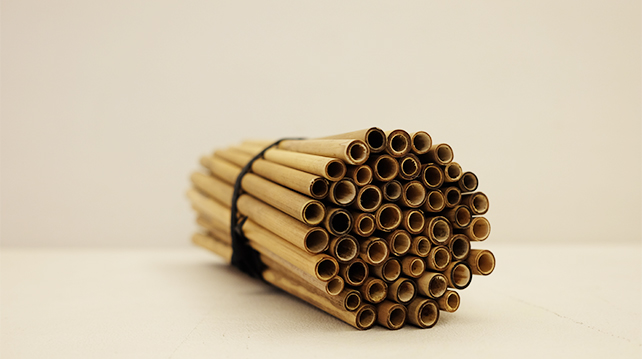An initiative that calls for replacing the use of plastic straws with bamboo straws has sprouted from several sources in Malaysia.
Started by five siblings in Sabah, The Usuk Initiative has been producing bamboo straws since 2014. Their straws are sold in Malaysia, Singapore, Australia to even as far as Iran and Oman in the Middle East. The group got their name from Murutic, a Sabah native language, which refers to bamboo straws as “usuk”. In Sabah, usuk up to 3ft tall are cut with sharp ends to penetrate the tapai (fermented rice wine) jar opening covered with tarap leaves. Tapai are traditional homemade beverages usually consumed during a 2-month long celebration in Sabah.
“The hardest part in Malaysia is spreading the idea of reusable straws. Malaysians in general are so used to the convenience of single use plastic straws. Most have no idea where the straws would end up,” says Jessie S., one of the 5 siblings in The Usuk Initiative.
Carolyn Lau of TakNakStraw founded the organisation in March 2017, and started to work with an orang asli couple in Serendah to make bamboo straws. The idea escalated when these handmade bamboo straws went on sale at The Cooler Lumpur Festival in August 2017.
“Countries around us like China, Thaliand, Cambodia are making bamboo straws, why aren’t we doing the same?” says Carolyn, who has found the right bamboo to make straws with. Not all bamboos are suitable for producing straws. Carolyn later found the same type of bamboo in another location and did more research and development with another orang asli couple to make these straws last longer and commercially viable.
The volume of bamboo straws made by the orang asli can’t be compared with those made with machines in bulk in other countries, but their quality and durability are comparable. “The biggest step to ensure the bamboo straws are free of mould is cleaning out the carbohydrate inside the tube when it is freshly cut.”
Bamboos are easy to dry as long as they are properly cleaned. The cut bamboos are sterilised by boiling, steaming, cleaned with salt or vinegar to prevent bacterial and fungal infestation. They have a lifespan of up to a year depending on how they are cared for. “If you drank a milkshake with it, it will need a bit of scrubbing obviously but if you’ve just sipped ice lemon tea from it, a quick rinse will do the job,” explained Carolyn. Bamboo straws are also dishwasher safe.
Bring along your own straw when you're out and about. Other than bamboo straws, there are other straw-ternatives that are durable and easy to clean.
The question always asked is how hygienic bamboo straws are but not many ask the same about plastic straws. Carolyn emphasised that plastic straws go through a water rinsing process, how many times has this water been changed? Also, where these plastic straws have been stored is also a question to be asked. It is the perception that plastic straws are cleaner to use but the point about saving our environment is missed.
“Bamboo straws wear out as a natural product and need more care, but all things natural require a bit more care, just like humans,” says Carolyn with a smile.
You can buy bamboo straws from The Hive Bulk Foods at RM4 per piece or email The Usuk Initiative, TakNakStraw or Sampah, Menyampah to order in bulk.
